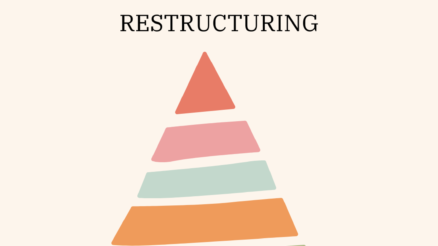Have you ever wondered how a global giant like Coca Cola manages to navigate through a crisis?
Picture this: one of the most beloved beverage brands in the world, facing a crisis that threatens its reputation and consumer trust.
What would you do if you were in their shoes?
In this Coca Cola crisis management case study, we delve into the fascinating world of Coca Cola’s crisis management strategies.
Join us as we unravel the gripping tale of how this iconic company tackled a major crisis head-on, learning valuable lessons along the way.
Get ready to discover the power of effective crisis management and the role it plays in safeguarding a brand’s legacy.
Brief history of Coca Cola and brand reputation and market share
Coca Cola, the world’s most recognizable beverage brand, has a rich and fascinating history that dates back over a century. It all began in 1886 when pharmacist John Pemberton created a unique syrup and mixed it with carbonated water, giving birth to the iconic Coca Cola drink.
From its humble beginnings as a soda fountain beverage, Coca Cola quickly gained popularity and expanded its presence across the United States.
As the brand grew, it ventured into international markets, establishing its first international bottling plants in the early 1900s. Today, Coca Cola is a truly global company with a remarkable presence in over 200 countries, offering a diverse portfolio of beverages beyond its flagship cola, including juices, teas, sports drinks, and more.
The brand’s global reach and market penetration have made it an integral part of people’s lives, transcending cultural boundaries and becoming a symbol of refreshment worldwide.
Coca Cola’s brand reputation is synonymous with excellence and innovation. Over the years, the company has nurtured a strong brand identity built on trust, quality, and a commitment to delivering refreshing beverages to consumers.
The distinctive red and white logo is instantly recognizable, evoking feelings of nostalgia and joy.
With its relentless pursuit of customer satisfaction, Coca Cola has successfully captured a significant portion of the global beverage market. Despite fierce competition, the brand has maintained a dominant position, consistently ranking among the top beverage companies in terms of market share.
Coca Cola’s ability to adapt to changing consumer preferences, introduce new products, and leverage its brand equity has solidified its position as a leader in the industry.
However, even the strongest brands are not immune to crises, as we shall explore in the following sections.
Description of the Crisis Incident
In the annals of Coca Cola’s history, there have been instances where the brand faced significant crises that posed immense challenges to its reputation. One notable crisis involved allegations of product contamination, which sent shockwaves through the company and its consumers.
Imagine the scene: rumors started circulating that certain batches of Coca Cola products were contaminated, raising concerns about the safety and quality of the beloved beverage.
The news spread rapidly, fueled by social media and sensationalized media coverage, creating a sense of fear and uncertainty among consumers.
As the crisis unfolded, consumers expressed worries about potential health risks associated with consuming Coca Cola products. Speculations and negative narratives further fueled the crisis, amplifying the impact and posing a threat to the brand’s credibility and customer trust.
For Coca Cola, the crisis was a critical moment that demanded swift and effective action. The company faced the daunting task of managing the situation, addressing the concerns of its stakeholders, and restoring faith in its products. How did Coca Cola navigate through this tumultuous period? Let’s delve into their crisis management strategies and discover how they triumphed in the face of adversity.
Media coverage and public reaction
The crisis surrounding Coca Cola triggered a flurry of media coverage, with news outlets and social media platforms buzzing with discussions, speculations, and varying viewpoints. The sensational nature of the allegations and the widespread popularity of the brand ensured that the crisis garnered significant attention from the public and the media.
News reports, both traditional and digital, dissected the crisis, amplifying the concerns raised by consumers and shedding light on the potential consequences. Social media platforms became the breeding ground for discussions, where users expressed their opinions, shared experiences, and voiced their worries about the safety of Coca Cola products.
The intensity of the media coverage and public reaction put immense pressure on Coca Cola to address the crisis promptly and transparently. The company found itself navigating a landscape where every move was under scrutiny, and its response would shape public perception and future consumer behavior.
Initial response by Coca Cola
When confronted with the crisis, Coca Cola swiftly mobilized its crisis management team to address the situation head-on. Recognizing the importance of immediate action, the company adopted a proactive approach to manage the crisis and mitigate potential damage to its brand reputation.
Coca Cola’s initial response focused on three key pillars: transparency, accountability, and communication. The company acknowledged the concerns raised by consumers and the media, demonstrating a commitment to address the crisis with utmost seriousness.
First and foremost, Coca Cola conducted a thorough investigation into the alleged product contamination, leaving no stone unturned to uncover the truth. This transparent approach aimed to regain consumer trust by ensuring that the safety and quality of their products were of paramount importance.
Simultaneously, Coca Cola took accountability for any shortcomings or mistakes that may have contributed to the crisis. The company issued public statements expressing genuine regret for the distress caused to consumers and reassured them of their commitment to resolving the issue promptly and effectively.
Immediate actions taken by Coca Cola to address the crisis
In the face of the crisis, Coca Cola implemented a series of immediate actions to address the situation and regain consumer confidence. These actions were aimed at ensuring the safety and quality of their products, as well as effectively managing the crisis at hand.
Product Recall and Investigation
As a responsible measure, Coca Cola initiated a comprehensive product recall of the affected batches in collaboration with regulatory agencies. This demonstrated their commitment to consumer safety and allowed for a thorough investigation into the alleged contamination.
Enhanced Quality Assurance Procedures
Coca Cola implemented rigorous quality assurance procedures to prevent future incidents and maintain the highest standards of product safety. They reviewed and strengthened their manufacturing and packaging processes, as well as enhanced monitoring and testing protocols.
Collaboration with Regulatory Bodies
Recognizing the importance of regulatory compliance, Coca Cola collaborated closely with relevant regulatory bodies throughout the crisis. They provided full cooperation, shared information, and adhered to the recommendations and guidelines set forth by these authorities.
Communication strategies employed
Effective communication is crucial during a crisis, and Coca Cola employed various strategies to ensure transparent and consistent messaging to stakeholders. These communication strategies aimed to address concerns, provide accurate information, and rebuild trust in the brand.
Press Releases
Coca Cola utilized press releases as a primary means of communicating official statements and updates regarding the crisis. These press releases were disseminated to the media and made available to the public, ensuring timely and accurate information about the steps being taken to address the situation.
Social Media Engagement
Recognizing the power of social media in shaping public perception, Coca Cola actively engaged with consumers through social media platforms. They responded to queries, addressed concerns, and provided updates on the progress of the investigation. This direct engagement helped to establish a sense of transparency and responsiveness.
Website Updates
Coca Cola dedicated a section on their official website to address the crisis and provide comprehensive information to concerned consumers. This platform served as a central hub for sharing details about the investigation, product recalls, and ongoing efforts to resolve the crisis.
Stakeholder Communication
Coca Cola prioritized communication with its stakeholders, including distributors, retailers, and business partners. They provided regular updates to these stakeholders, addressing any potential impact the crisis might have on their operations and assuring them of the measures being taken to rectify the situation.
Spokesperson Representation
Coca Cola designated trusted and credible spokespersons to represent the company and communicate with the media. These individuals were well-versed in the crisis details and effectively conveyed the brand’s commitment to consumer safety and resolution.
The role of company leadership in crisis management
During a crisis, strong and effective leadership is crucial in guiding the organization through the challenges and ensuring a successful resolution. In the case of Coca Cola, company leadership played a vital role in crisis management, demonstrating their commitment, decisiveness, and ability to navigate through adversity.
Strategic Decision-Making
The leadership at Coca Cola spearheaded the strategic decision-making process during the crisis. They analyzed the situation, gathered information, and collaborated with experts to make informed choices that would best address the crisis and safeguard the brand’s reputation. Their ability to make tough decisions quickly and effectively guided the crisis management efforts.
Communication and Transparency
Company leadership took the responsibility of communicating with stakeholders, including employees, consumers, distributors, and regulatory bodies. They ensured that the messaging was transparent, consistent, and aligned with the company’s values. By openly addressing concerns, admitting any mistakes, and providing regular updates, leadership fostered trust and credibility during the crisis.
Team Mobilization and Empowerment
Effective crisis management requires the mobilization and empowerment of cross-functional teams within the organization. Coca Cola’s leadership ensured that the crisis management team had the necessary resources, support, and authority to address the crisis effectively. They encouraged collaboration, innovation, and open communication within the teams to expedite the resolution process.
Continuous Learning and Improvement
In the aftermath of the crisis, company leadership played a crucial role in fostering a culture of continuous learning and improvement. They conducted thorough evaluations of the crisis management process, identified lessons learned, and implemented measures to prevent similar incidents in the future. Their commitment to learning from the crisis helped enhance the company’s resilience and preparedness for potential future challenges.
05 lessons learned from coca cola crisis management
These lessons learned from Coca Cola’s crisis management case study serve as valuable insights for other organizations facing similar challenges.
Let’s discuss each of these lessons learned:
Swift and Transparent Communication
The crisis taught Coca Cola the importance of immediate and transparent communication. By promptly addressing concerns, providing accurate information, and engaging with stakeholders openly, the company was able to regain trust and control the narrative surrounding the crisis.
Collaboration with Regulatory Bodies and Experts
Coca Cola’s collaboration with regulatory bodies and external experts proved vital in validating their actions and ensuring compliance with industry standards. This collaboration enhanced the credibility of the company’s crisis management efforts and helped regain confidence in their products.
Proactive Approach to Crisis Resolution
Coca Cola’s proactive response to the crisis demonstrated the significance of taking ownership and accountability for the situation. By swiftly initiating product recalls, conducting investigations, and implementing enhanced quality assurance procedures, the company showed a commitment to consumer safety and resolution.
Continuous Learning and Improvement
The crisis served as a catalyst for continuous learning and improvement within Coca Cola. The company evaluated the crisis management process, identified areas for improvement, and implemented measures to prevent similar incidents in the future. This commitment to learning from the crisis enhanced their resilience and preparedness.
Importance of Leadership
Strong leadership played a critical role in guiding Coca Cola through the crisis. The ability to make strategic decisions, communicate effectively, and empower teams was instrumental in navigating through the challenges and restoring consumer trust. The crisis highlighted the importance of having capable leaders who can steer the organization through turbulent times.
Final words
Coca Cola crisis management case study provides us with valuable insights and lessons that can be applied to various organizations facing similar challenges. The company’s response to the crisis surrounding alleged product contamination showcased the importance of swift and transparent communication, collaboration with regulatory bodies and experts, taking a proactive approach to resolution, fostering a culture of continuous learning, and demonstrating strong leadership.
The Coca Cola crisis management case study serves as a reminder that crisis management is not just about resolving immediate issues but also about building trust, maintaining open communication, and continuously improving processes. By incorporating these lessons, organizations can transform crises into opportunities for growth and demonstrate their ability to weather storms and emerge even stronger.



